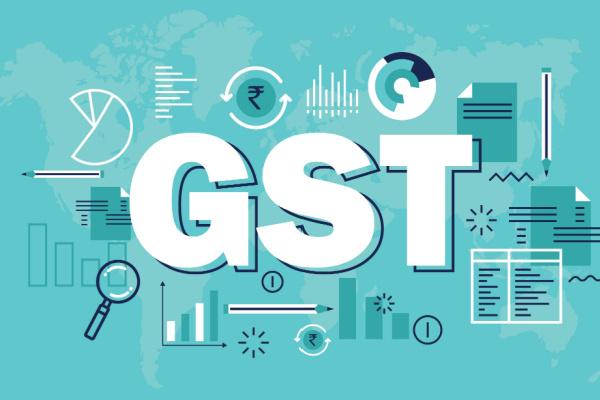The Goods and Services Tax (GST) is a crucial component of India’s indirect tax structure. It was introduced on July 1, 2017, to streamline the taxation system and replace multiple taxes levied by both the central and state governments. Under GST, businesses are required to file regular returns and make GST payments within specific due dates. This article provides a comprehensive guide to GST payment dates, including due dates, late fees, offenses, and penalties. Whether you are a business owner or an individual taxpayer, understanding the GST payment process is essential for compliance and avoiding penalties.
GST Payment and Due Dates
GST payment due dates are determined based on the type of taxpayer and the turnover of the business. Generally, there are three types of taxpayers under GST:
1. Regular Taxpayers
Regular taxpayers are businesses with a turnover exceeding the prescribed threshold (Rs. 40 lakhs for goods suppliers and Rs. 20 lakhs for service providers). They are required to file monthly GST returns and make GST payments on a regular basis.
2. Composition Scheme Dealers
Small businesses with a turnover up to Rs. 1.5 crores can opt for the composition scheme, where they pay taxes at a fixed rate and file quarterly returns. The due date for composition scheme dealers is different from regular taxpayers.
3. Input Service Distributors (ISD)
Input Service Distributors are entities that receive invoices for input services and distribute the input tax credit to their branches or units. They are required to pay GST on a monthly basis.
The due dates for GST payment vary based on the type of taxpayer and their turnover. For regular taxpayers, the due date for payment of GST is the 20th of the succeeding month. For composition scheme dealers, it is the 18th of the succeeding quarter. ISDs are required to make payments by the 13th of the succeeding month.
Late Fees and Penalties
Late payment of GST attracts interest and penalties. It is essential to comply with the due dates to avoid additional financial burden. Here’s a breakdown of late fees and penalties for delayed GST payments:
1. Interest on Late Payment
Interest on late payment is calculated at a specified percentage on the outstanding tax amount from the due date until the actual date of payment. As of 2023, the interest rate is 18% per annum for both CGST and SGST/UTGST.
2. Late Fee for Late Filing
If a taxpayer fails to file their GST return within the due date, they are liable to pay a late fee. The late fee for GSTR-3B (the return for regular taxpayers) is Rs. 50 per day for CGST and Rs. 50 per day for SGST/UTGST, totaling Rs. 100 per day. The maximum late fee is capped at Rs. 5,000.
3. Late Fee for Nil Return
If there is no taxable activity during a specific period, taxpayers are still required to file nil returns. The late fee for filing nil returns is Rs. 20 per day for CGST and Rs. 20 per day for SGST/UTGST, totaling Rs. 40 per day. The maximum late fee for nil return is also capped at Rs. 5,000.
4. Late Fee for Composition Dealers
Composition scheme dealers who fail to furnish their quarterly return within the due date are liable to pay a late fee of Rs. 200 per day. The maximum late fee is Rs. 5,000.
5. Penalties for Offenses
Under GST, certain offenses can attract penalties. These offenses include:
- Tax evasion or fraudulent activities to evade tax liabilities.
- Supplying goods or services without issuing proper invoices or using incorrect invoices.
- Failure to maintain required books of accounts and records.
Penalties for offenses can range from monetary fines to imprisonment, depending on the severity of the offense.
Tips for Timely GST Payments
To ensure timely GST payments and avoid penalties, consider the following tips:
1. Set Reminders
Mark GST payment due dates on your calendar and set reminders to avoid missing deadlines.
2. Maintain Proper Records
Maintain accurate records of all transactions and invoices to ensure correct and timely filing of GST returns.
3. Use Online Payment Modes
Make use of online payment modes like internet banking or payment gateways to pay GST. This can expedite the payment process and reduce the chances of delays.
4. Consult a Tax Professional
If you are unsure about the GST payment process or have complex transactions, seek advice from a tax professional to ensure compliance.
5. Regularly Check GST Portal
Regularly check the GST portal for updates on due dates, late fees, and any changes in the GST law.
Conclusion
Understanding the GST payment process, due dates, and penalties is crucial for all taxpayers to remain compliant and avoid unnecessary financial burdens. Timely GST payments not only help in avoiding interest and penalties but also contribute to the smooth functioning of the tax system. By staying informed about the GST laws and maintaining proper records, businesses and individuals can ensure a seamless GST payment experience while contributing to the nation’s growth and development.






